On the morning of June 16, the Law on Teachers was passed at the 9th Session of the 15th National Assembly with 451/460 delegates present in favor (accounting for 94.35% of the total number of delegates). Nhan Dan Newspaper had an interview with Director of the Department of Teachers and Education Management, Ministry of Education and Training Vu Minh Duc about the highlights of the Law and the implementation roadmap in the coming time.
Reporter: Mr. Vu Minh Duc, Director of the Department of Teachers andEducation Management, the Law on Teachers has just been passed by the National Assembly at the 9th Session of the 15th National Assembly. From your perspective, what are the most prominent new points, considered policy breakthroughs to elevate the status and protect the teaching staff in the current context?
Director Vu Minh Duc : The Law on Teachers is the first specialized law that fully regulates the legal status, rights, obligations and policies for teachers. The following are notable new points:
Firstly, the Law on Teachers standardizes the teaching staff through a system of titles associated with professional standards for teachers, suitable for each level of education and training level. The requirements are applied equally to teachers in public and non-public educational institutions. For the first time, the legal status of non-public teachers is fully and consistently established as teachers, not just as employees under the labor contract mechanism. The general requirements on professional standards associated with each title applied equally will contribute to creating a level of quality for the teaching staff, ensuring fairness in access to quality education among types of schools.
Director of the Department of Teachers and Education Management, Ministry of Education and Training Vu Minh Duc (Photo: THANH DAT)
Second, the Law clarifies the rights and obligations of teachers in the direction of increasing their initiative, creativity and protection in their professional activities. At the same time, it establishes sanctions to protect teachers through the rights and prohibitions of individuals and organizations related to teachers. In particular, regulations on posting and disseminating information that assigns responsibility without a conclusion from a competent authority. This is an important new point, contributing to building a healthy educational environment.
Third, regulations on teacher recruitment must ensure pedagogical practice in order to select people with sufficient capacity in accordance with teacher professional standards, meeting the professional activities of teachers at each level of education and training level.
Fourth, policies on mobilization, assignment, transfer, inter-school and inter-level teaching for teachers in public educational institutions are fully regulated. This is an important legal basis for the education sector to arrange and assign staff in accordance with practical requirements, contributing to solving the problem of local surplus and shortage of teachers at all levels, contributing to improving the quality and capacity of the staff.
In the Law on Teachers, some specific policies are given specific attention: Preschool teachers can retire at a lower age than the retirement age of workers under normal conditions; teachers in public educational institutions with the title of professor, associate professor or doctoral degree and teachers working in specific industries and fields can enjoy retirement benefits at an advanced age.
Director Vu Minh Duc
Some specific policies are of particular interest: Preschool teachers and teachers in preschool education institutions, if they wish, can retire at a lower age than the retirement age of employees under normal conditions; teachers in public education institutions with the title of professor, associate professor or doctoral degree and teachers working in specific industries and fields can enjoy retirement benefits at an advanced age.
Fifth, the salary, treatment and support policies for teachers are given attention, creating the best conditions in the current context. The Law clarifies the policy of attracting and employing highly qualified, talented, specially gifted people with high professional skills to become teachers.
Classroom at Thai Thinh Secondary School (Photo: THE DAI)
Some specific policies are of particular interest: Preschool teachers and teachers in preschool education institutions, if they wish, can retire at a lower age than the retirement age of employees under normal conditions; teachers in public education institutions with the title of professor, associate professor or doctoral degree and teachers working in specific industries and fields can enjoy retirement benefits at an advanced age.
Sixth, the education sector is given the initiative in recruiting and using teachers. Accordingly, heads of public universities and vocational training institutions are given autonomy in recruiting teachers. The Minister of Education and Training regulates the authority to recruit teachers in preschool, general education, and continuing education institutions. The Ministry of Education and Training is also assigned to preside over and coordinate with ministries, sectors, and localities to develop strategies, projects, and development plans, and the total number of teachers under its management, and submit them to competent authorities for decision; propose competent authorities to approve the number of teachers in public educational institutions.
Reporter: The salary and benefits regime for teachers is always a top concern, so does this Law on Teachers provide any specific and highly feasible regulations to substantially improve teachers' lives?
Director Vu Minh Duc : When drafting the Law on Teachers, the drafting agency wanted to concretize the policies of the Party and the State to the maximum extent, especially regarding salary policy. The Law clearly stipulates in Point b, Clause 1, Article 23 that "Teachers' salaries are ranked highest in the administrative career salary scale system" and assigns the Government to specify this content in detail. This is an important basis for the Government to have regulations related to teachers' salaries, ensuring the policy of "ranking highest".
On that basis, the Ministry of Education and Training has drafted a Decree regulating policies on salaries, allowances, support and attraction for teachers. The draft is expected to advise the Government to rearrange the salary tables for a number of positions such as preschool teachers, general education teachers, university preparatory teachers, and grade IV vocational education teachers, etc. to ensure uniformity in the salary tables applied to professional positions of teachers and civil servants and other sectors and fields; at the same time, ensuring the living standards of teachers, helping teachers feel secure in their work and contribute to the cause of education.
(Photo: THE DAI)
At the same time, a specific salary coefficient of 1.1 to 1.6 will be applied depending on the level of education and training, ensuring that teachers' salaries are higher than those of civil servants on the same salary scale in other fields; at the same time, narrowing the gap between young teachers and experienced teachers. These proposed solutions will be an important basis for implementing salary rearrangement in the coming time, ensuring that teachers' salaries are "ranked highest".
In addition, the Law on Teachers also has many specific contents to attract and ensure fairness for teachers working in difficult conditions. Specifically, Point c, Clause 1, Article 23 of the Law on Teachers stipulates that “ Preschool teachers; teachers working in ethnic minority areas, mountainous areas, border areas, islands and areas with especially difficult socio-economic conditions; teachers teaching in specialized schools; teachers implementing inclusive education; teachers in some special fields and occupations are entitled to higher salaries and allowances…”
The law also stipulates for the first time policies to support, attract and employ all teachers, regardless of whether they are public or non-public. Accordingly, teachers are entitled to subsidies according to the nature of their work and the region; are supported with training, retraining, periodic health care, and mobility allowances when carrying out the work of eliminating illiteracy, universalizing education, secondment, intensive teaching, inter-school teaching, and teaching at school locations. In addition, teachers working in ethnic minority areas, mountainous areas, border areas, islands and areas with especially difficult socio-economic conditions are entitled to rent public housing or receive housing support if there is no collective accommodation.
(Photo: THE DAI)
The Law on Teachers also stipulates two specific retirement policies. First, preschool teachers who wish to retire earlier than the prescribed age under normal conditions. This provision meets the wishes and aspirations of preschool teachers over the past time and has received high consensus. Second, to retain highly qualified people, teachers with the title of professor, associate professor, doctorate or working in specialized fields and industries can retire later.
This policy contributes to concretizing the policy of attracting, recruiting and retaining human resources in science, technology, and digital transformation in the political system; at the same time, developing a team of qualified lecturers and scientists to teach strategic fields according to the Party's policy in Decree No. 57-NQ/TW on breakthroughs in science, technology, innovation and national digital transformation. This is also the basis for the Ministry of Education and Training to issue or advise the Government to issue detailed regulations and instructions on salaries and preferential regimes, demonstrating the respect of society and the care of the Party, State and the whole society for the teaching staff.
Reporter: Professional ethics and the responsibility to set an example are always the “mirrors” that reflect the image of teachers. How does this Law on Teachers specify those requirements, sir?
Director Vu Minh Duc : Ethics and responsibility to set an example are the core qualities, the foundation of a teacher's personality. The Law on Teachers has a separate article regulating teachers' ethics, clearly defining "Teachers' ethics include the rules of conduct of teachers in their relationships with students, colleagues, students' families and the community". This is not only a requirement for behavioral standards but also a tool for teachers to practice, maintain and promote professional qualities.
The responsibility to set an example is also identified as an important quality in the personality of a teacher. According to regulations, the professional activities of a teacher are professional, innovative, creative, helping learners develop comprehensively in terms of qualities and abilities through teaching, education and setting an example. Teachers need to be exemplary in their profession, behave in social relationships and ensure academic integrity.
Reporter: Does the law provide any mechanism to both protect teachers' reputation and strictly handle violations of standards, sir?
Director Vu Minh Duc : To motivate teachers to maintain and promote ethics and exemplary responsibility, the Law on Teachers clearly stipulates mechanisms to protect professional reputation and teacher values. Specifically, the State has policies to protect the reputation, honor, and dignity of teachers in professional activities; teachers have the right to be respected, protected, and treated equally in the process of teaching and professional development.
(Photo: THANH DAT)
In addition, the Law also clearly stipulates the responsibility for handling acts that infringe upon the reputation, honor, and dignity of teachers, depending on the nature and severity of the violation, may be subject to disciplinary action, administrative sanctions, or criminal prosecution; and compensation must be paid in accordance with the provisions of law. In particular, violations occurring in educational institutions or during the performance of teachers' professional activities will be strictly handled. These provisions demonstrate the respect and protection of teachers, and also clearly establish the principle of fairness and transparency in handling violations, if any.
Reporter: Preschool education and education in remote areas have long been a “bottleneck” in the problem of developing the teaching staff. What specific solutions does this Law on Teachers have to overcome difficulties, attract and retain teachers in these challenging areas?
Director Vu Minh Duc : To increase the attraction of teachers to the preschool education sector and encourage teachers to work in remote areas, the Law on Teachers has stipulated many specific policies in addition to current policies. Notably, the general salary policy, at Point b, Clause 1, Article 23 "Teachers' salaries are ranked highest in the administrative career salary scale system".
The law also pays special attention to preschool teachers and teachers working in disadvantaged areas. According to Point c, Clause 1, Article 23, these subjects will enjoy higher salary and allowance regimes, applicable to preschool teachers, teachers in ethnic minority areas, mountainous areas, border areas, islands, teachers implementing inclusive education and some special fields and occupations.
In addition, teachers working in disadvantaged areas are supported with public housing, collective housing or rent if they cannot arrange for it. Preschool teachers who wish can retire at an age lower than the retirement age of workers under normal conditions, but not more than 5 years. In case of having paid social insurance for 15 years or more, the pension percentage will not be reduced due to early retirement.
(Photo: DAI THANG)
The law also stipulates preferential policies in recruiting, receiving, and transferring teachers to work in disadvantaged areas, while ensuring the right to be transferred back to favorable areas after completing their tasks. These regulations create an important legal corridor for developing the teaching staff, especially in the field of preschool education and in disadvantaged areas.
At the same time that the Law on Teachers comes into effect, there will be 2 Decrees and nearly 20 guiding Circulars issued simultaneously. These documents play a key role in specifying the provisions of the Law, ensuring consistency and synchronization throughout the system and creating a legal corridor, helping the policies of the Law to be put into practice soon, so that teachers can access the prescribed policies early.
Reporter: Once the Law on Teachers is passed, how will the provisions of the law be implemented? Do the Ministry of Education and Training and the Department of Teachers have any specific plans, roadmaps or guidelines to put the law into practice?
Director Vu Minh Duc : The Law on Teachers will take effect from January 1, 2026, demonstrating the expectation that better policies for teachers will soon be implemented in practice, although this also creates great pressure for the drafting agency to complete the system of documents guiding implementation on schedule.
According to the plan, at the same time the Law on Teachers comes into effect, there will be two Decrees and nearly 20 guiding Circulars issued simultaneously. These documents play a key role in specifying the provisions of the Law, ensuring consistency and synchronization in the entire system and creating a legal corridor, helping the policies of the Law to be put into practice soon, so that teachers can access the prescribed policies early. Up to now, when the Law is issued, the Decrees and Circulars will be implemented in accordance with the process of drafting normative documents and will be issued at the time the Law on Teachers comes into effect.
While the Law mainly stipulates general principles and contents, the guiding documents will specify those regulations, helping teachers and relevant agencies effectively and transparently implement policies and procedures; at the same time, creating a legal basis for inspection, supervision and handling of violations, ensuring that the Law is put into practice in a practical and effective manner.
Thank you very much!
QUYNH NGUYEN - YOUTH
Source: https://nhandan.vn/som-dua-luat-nha-giao-vao-doi-song-gop-phan-nang-cao-vi-the-va-bao-ve-doi-ngu-nha-giao-post887212.html



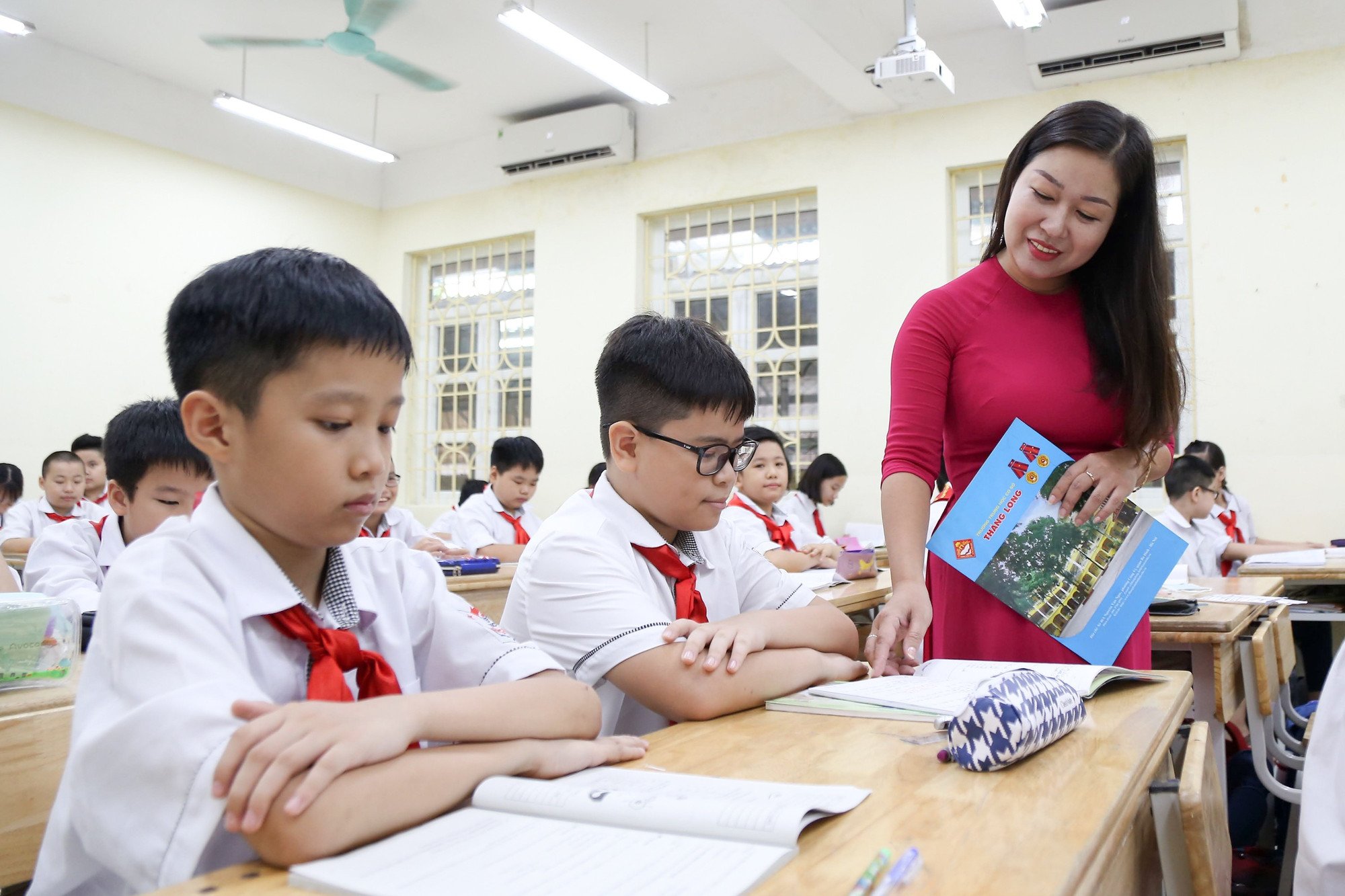
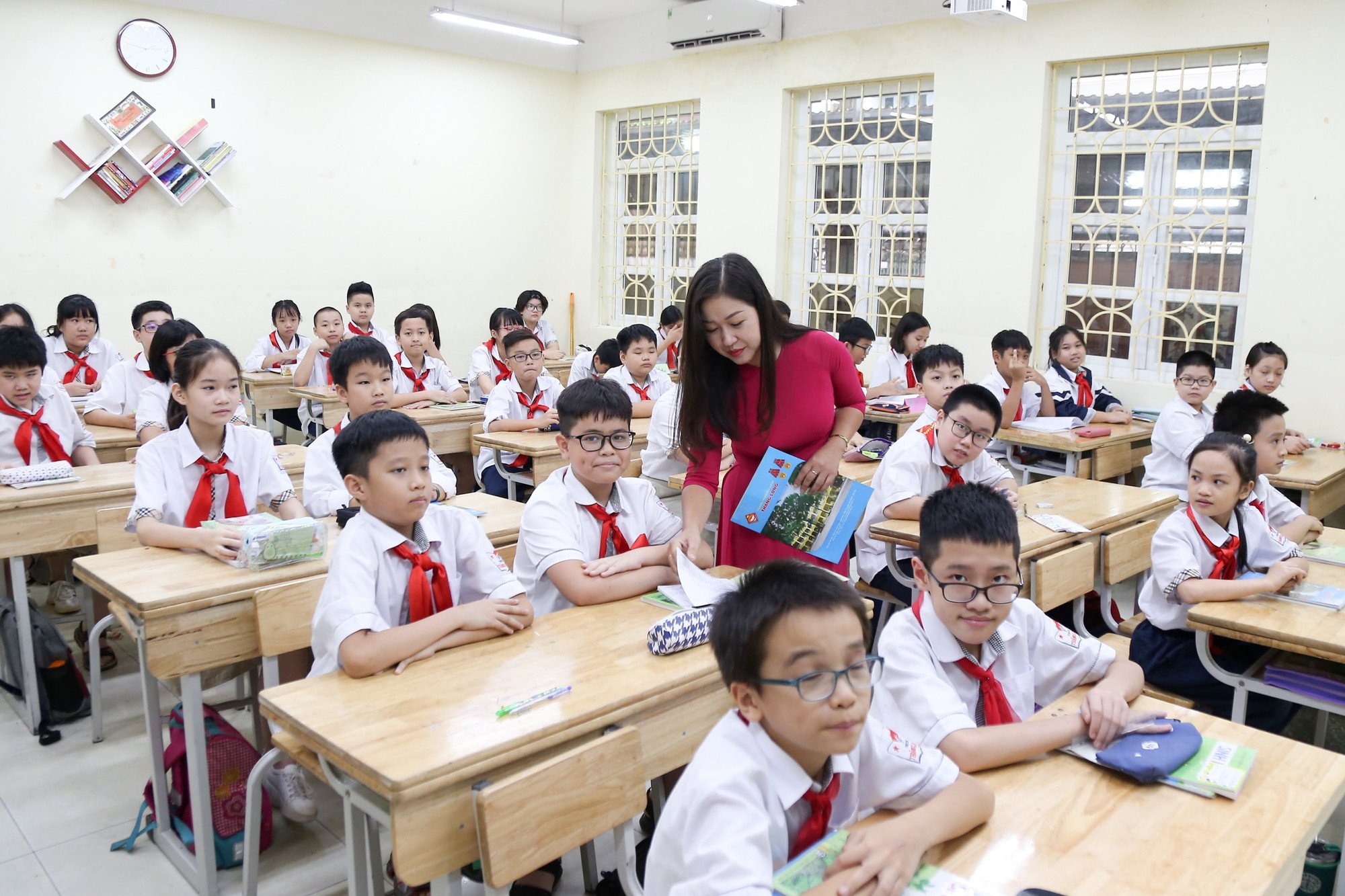
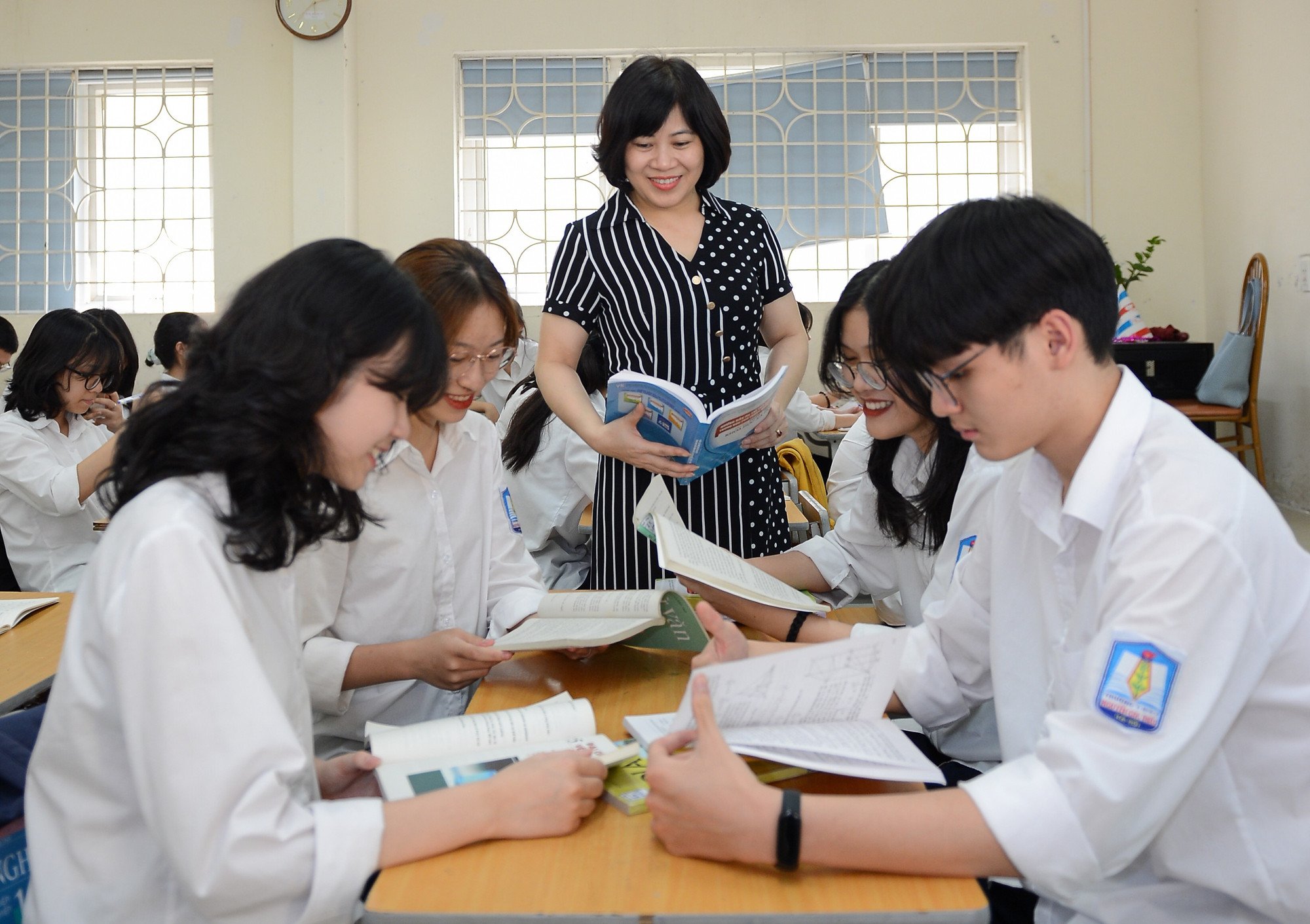

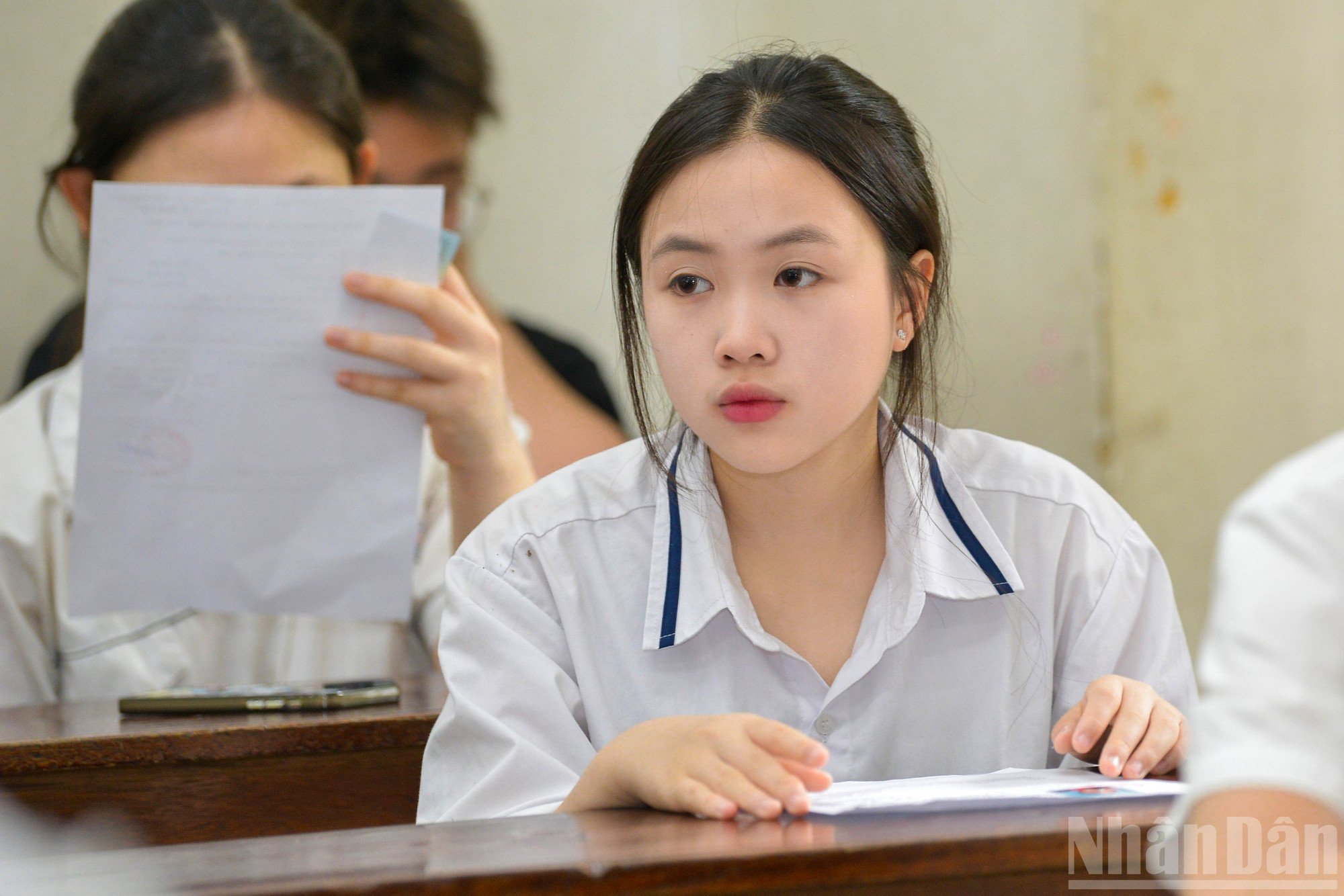
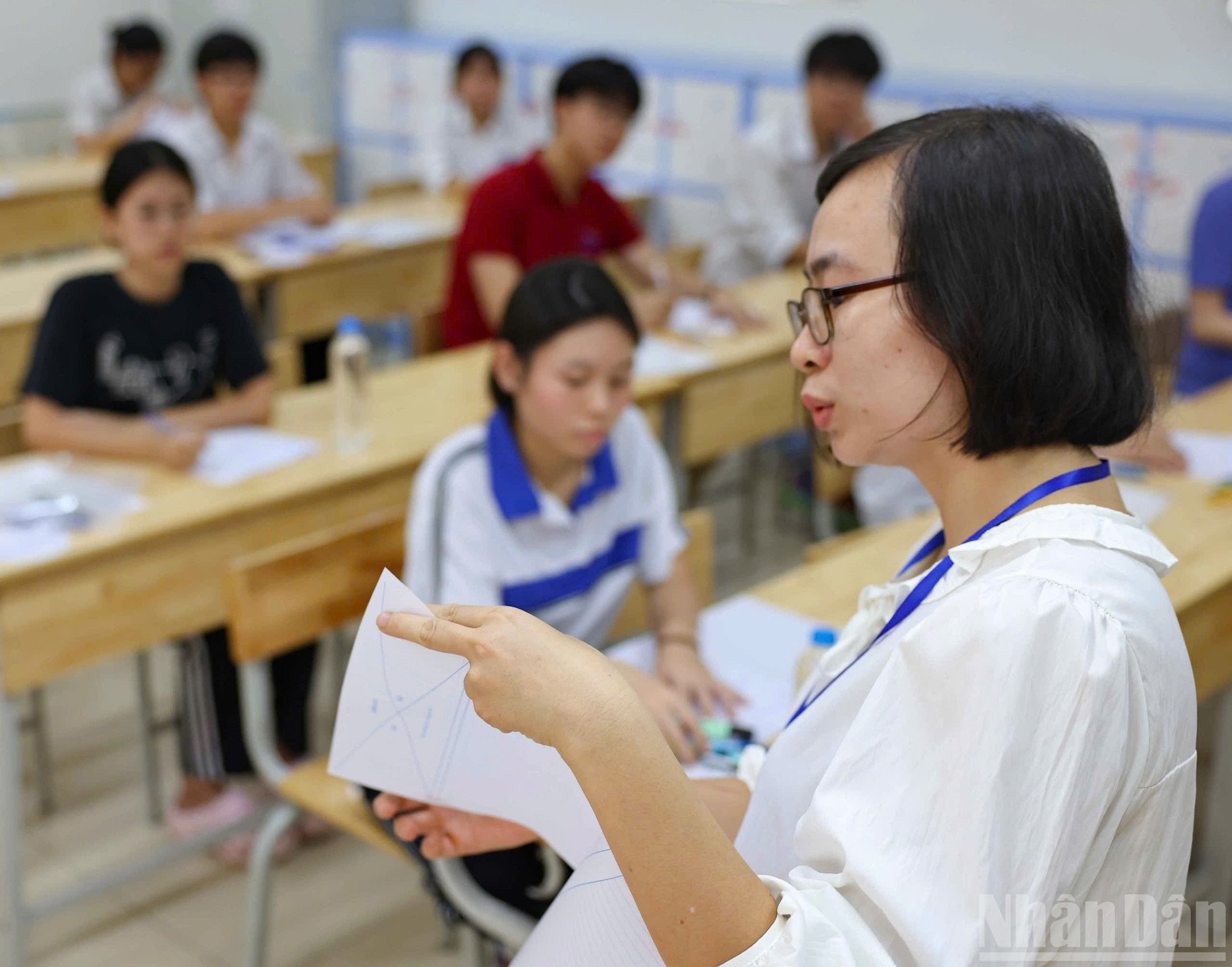





![[Photo] General Secretary To Lam receives Australian Ambassador to Vietnam Gillian Bird](https://vphoto.vietnam.vn/thumb/1200x675/vietnam/resource/IMAGE/2025/6/26/ce86495a92b4465181604bfb79f257de)
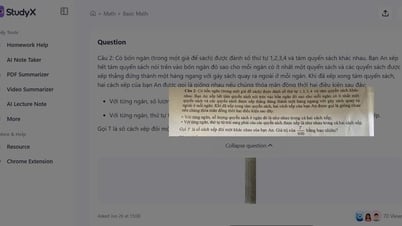

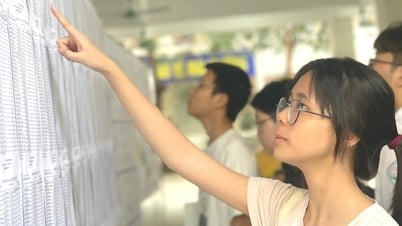

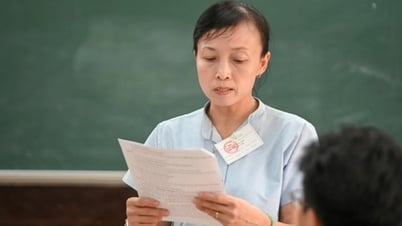
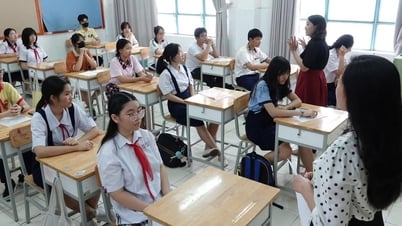
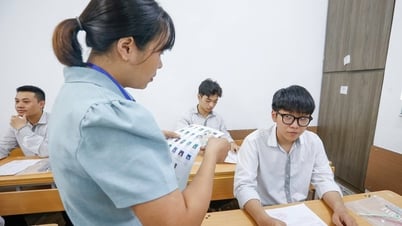










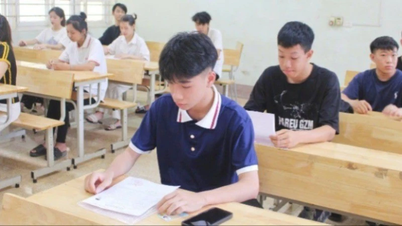
![[Photo] Candidates take the first graduation exam with the new Literature topic](https://vphoto.vietnam.vn/thumb/1200x675/vietnam/resource/IMAGE/2025/6/26/dfded9e317554c25a3e26defe672ebb7)

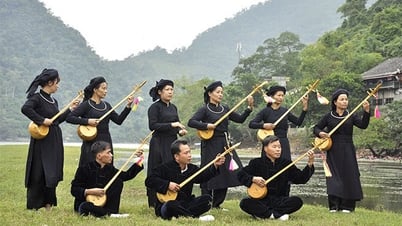
















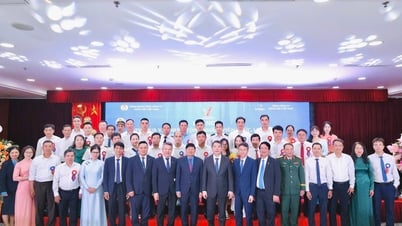

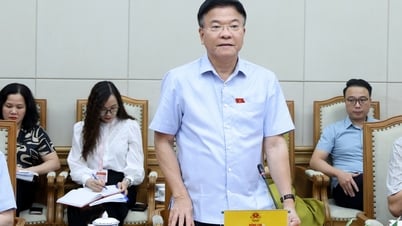










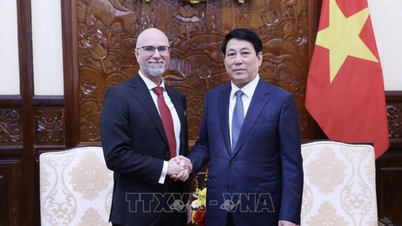
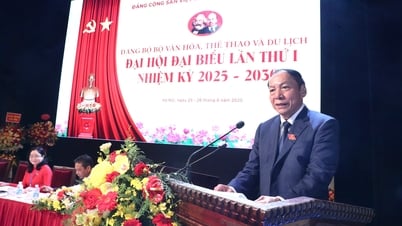

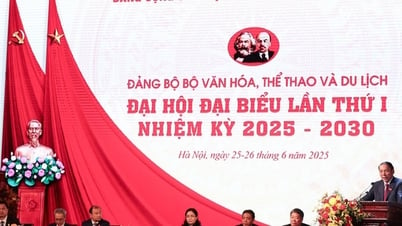




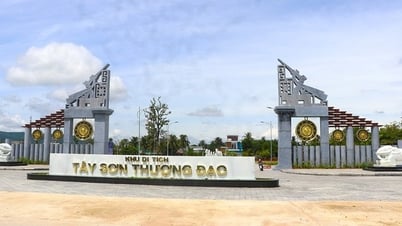
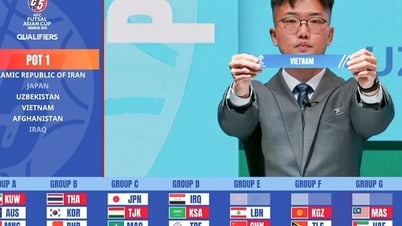





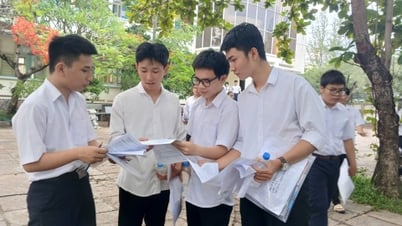
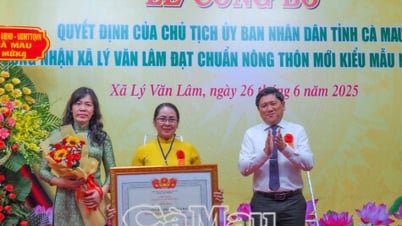

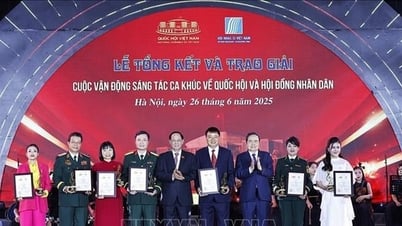


















Comment (0)